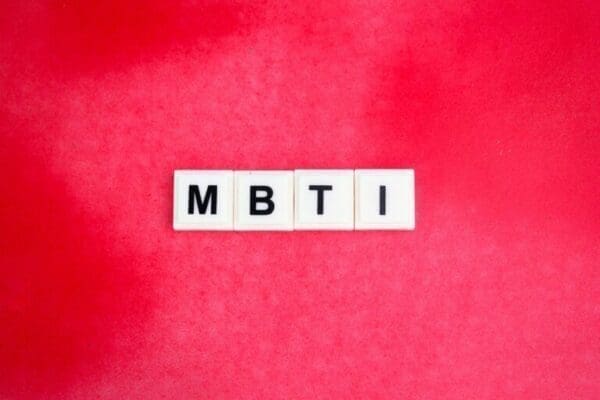‘The Inspirer’
The ENFP personality type was developed by Katharine Briggs and Isabel Myers, the creators of the Myers-Briggs Type Indicator (MBTI®). ENFP stands for Extraversion, iNtuition, Feeling, and Perceiving, which are four core personality traits based on C.G. Jung’s work.
Each of the four letters of the ENFP code represents a key personality trait of this personality type. ENFPs are energised by social interaction (Extraverted), prefer to focus on ideas and concepts rather than facts and details (iNtuitive), make decisions based on feelings and values (Feeling), and prefer to be spontaneous and flexible rather than planned and organised (Perceiving).
Due to this type’s passion for assisting others in realising their dreams, the ENFP personality type is also known as the ‘Inspirer’ or the ‘Campaigner’.

What is an ENFP Person Like?
-
Rich Inner Lives
ENFPs are more than their friendly exteriors; they possess rich, vibrant inner lives that drive their actions and interactions.
-
Imagination and Creativity
At the core of an ENFP is a potent mix of imagination and creativity, defining their unique approach to life.
-
Do your learners come back from training and do nothing differently?
Sticky Learning ® is 7 times more effective than 1-day training courses. Plus, you will get a Chain of Evidence proving your Return on Investment. Discover soft skills training that changes behaviours long term.
Get Started Now
Curiosity
With an insatiable curiosity, ENFPs are perpetual seekers, always on the lookout for new experiences and insights.
-
Introspection
Beyond their outgoing nature, Inspirers can be surprisingly introspective, regularly contemplating the deeper aspects of life.
-
Profound Thinking
ENFPs engage in profound thinking, often pondering the meaning of life, and showcasing a constant intellectual curiosity.
Assertive Campaigner (ENFP-A) vs. Turbulent Campaigner (ENFP-T)
Campaigners, regardless of their identities, are always free spirits with a strong desire to connect with others. That is a given for people with this personality type. These characteristics are present whether Assertive or Turbulent. They will, however, not look the same under the influence of the Identity personality trait.
Assertive Campaigners are more likely to see themselves as successful in life. However, this does not necessarily imply that individual Turbulent Campaigners are failing.
It is worth noting that, when compared to the average of all Turbulent individuals of all personality types, Turbulent Campaigners are more likely to believe they are successful. And this distinction may be due, in part, to the Campaigners’ independent spirit. They are more likely to define success as whatever they define it to be. Living by their standards may give them an advantage over those who live by others’ standards.
Turbulent Campaigners tend to dwell on their blunders longer than their Assertive counterparts. If they don’t find it too painful, clinging to mistakes may allow them to see and address issues that Assertive Campaigners might overlook.
What are ENFPs Good at?

1- Imaginative
ENFPs are creative problem solvers who reject the notion that traditional methods are always the best. They believe that an original approach is possible—and desirable—in every situation, and they refuse to become prisoners of habit or routine. They see roadblocks as opportunities and approach each challenge with fresh eyes and no preconceived notions.
2- Excellent Communicators
ENFPs have excellent communication skills and know how to use them. They will engage in conversation with anyone at any time, and they know how to draw others out in a way that keeps the conversation flowing. ENFPs provide the horsepower that keeps the engine of conversation humming, whether casually shooting the breeze or collaborating in the workplace.
3- Natural Leaders
ENFPs readily and instinctively step forward to assume positions of leadership. ENFP leaders are consensus builders who work hard to earn their associates’ trust by patiently listening to their ideas and enthusiastically responding to their good suggestions. Their confident, “can-do” attitude inspires and motivates others to action.
4- Strong Social Conscience
ENFPs are often active in social movements and are unafraid to stand up for what they believe in. Some people talk about the compassion game but don’t follow through with meaningful action. But ENFPs believe that caring words must be accompanied by good deeds. When exposed to suffering and injustice, an ENFP will go supernova with righteous anger, despite their friendly nature. They can be quite loud and assertive if necessary to get their points across.
What are ENFP’s Weaknesses?

1- Overthink Things
ENFPs tend to see slights, resentments, or hostility where none exist, and their tendency to overanalyse other people’s behaviour can lead to unnecessary rage and conflict. If ENFPs do not receive as many compliments from their significant others as they expect, their insecurities may be activated, and they may begin to feel unappreciated and unloved.
2- Hypersensitivity
ENFPs’ imaginations can run wild at times, and they frequently perceive bad intentions that do not exist. Being hyper-aware and hyper-alert can help ENFPs improve their social comprehension, but reading between the lines only works when there is something hidden there. If it is not, misunderstandings and hurt feelings can undermine good relationships.
3- Lack of Focus and Follow Through
ENFPs are insatiably creative, with the ability to fill a thousand days with a thousand bold ideas. ENFPs rely too heavily on their initial excitement and passion and do not always demonstrate the discipline required to translate their ideas into real-world production. They tend to begin new projects before the previous ones are completed, and failing to see things through is where ENFPs occasionally fall short.
4- Overemotional and Approval-Seeking
While emotional expression is an important part of the ENFP’s personality, it can be overpowering. ENFPs’ bubbly, energetic personality does not work well with every partner, and introverts, in particular, can feel suffocated in their presence. They are approval seekers as well, and in their desire for praise and recognition, they also may try a little too hard to make a good impression, talking too much and listening too little in the process.
ENFPs at Work
On a Team
ENFPs are energetic, involved team members who are curious about the possibilities for innovation. They enjoy interacting with others and hearing their ideas—the more imaginative, the better. Although they are open-minded, they are fundamentally grounded in values and seek to understand the principles and motivations behind their teammates’ ideas. They also want to inspire others to be creative and to find their voice.
As a Leader
ENFPs in leadership positions exude enthusiasm and excitement for their ideas. Their leadership style is democratic and adaptable, with an emphasis on developing human potential. They enjoy assisting others in growing as employees and as people, and they give their reports plenty of leeway to develop innovative and unique solutions. ENFP leaders also inspire others with their enthusiasm for their ideas and beliefs, and they are frequently astute in their assessments of people’s problems.

ENFPs are happiest in their jobs when they can use their outgoing, personable personalities to express themselves and help others. They can be found in a wide range of jobs and industries, but the most fulfilled They have found a way to incorporate creativity and originality into their daily work.
Top Careers for the ENFP:
#1 Actor:
They excel in acting due to their creativity and love for authentic expression. The dynamic nature of the role allows them to connect with others emotionally and explore various characters.
#2 Photographer:
Their artistic and visionary traits make photography a fitting career. It enables them to capture the world’s beauty, express unique perspectives, and also communicate emotions visually.
#3 Fundraiser:
Their natural communication skills and empathy make them effective fundraisers. Their passion for meaningful causes allows them to inspire others to contribute, aligning with their idealistic and compassionate nature.
#4 Art Director:
They thrive as art directors, leading and inspiring creative teams. The role allows them to channel their creativity into impactful designs and fosters a collaborative environment that suits their social and visionary tendencies.
Are ENFPs Forgetful?
They are often forgetful, disorganised, and completely inept. This means they’ll need colleagues who will notice the small details and put up with their flaws.
ENFP Growth and Development

ENFPs should do the following to reach their full potential:
1- Accept the Fact That if it Looks Like a Duck, Swims Like a Duck and Quacks Like a Duck …
ENFPs are intuitive with a keen sense of detail. However, they make a mistake when they insist on looking for hidden motivations or covert agendas everywhere. ENFPs should make a concerted effort in normal social interactions to give everyone the benefit of the doubt and take words and actions at face value. Assuming the worst can become a self-fulfilling prophecy because people will eventually detect an ENFP’s mistrust and reciprocate it.
2- Take the Foot off the Accelerator
That is, in social situations. Smiling, nodding, and listening are all excellent ways to communicate. Surprisingly, because they are so good with words, ENFPs usually require fewer of them to make their points or establish solid human connections.
3- Look Inside for Validation
ENFPs enjoy compliments and strive to please, which has a subtle, albeit not entirely positive, impact on their behaviour. When ENFPs pay too much attention to other people’s opinions, it can prevent them from following their instincts and leave them vulnerable to manipulation. “If being true to myself gets me in hot water, so be it,” ENFPs should tell themselves when they become overly concerned with what other people think.
4- Find Good Partners
ENFPs require assistants and coworkers who can handle the duties they tend to overlook because they are detail-oriented. They enjoy working in groups, so forming relationships or partnerships with people whose skills complement their own should not be difficult. ENFPs can benefit in their personal lives by connecting with people who excel at the aspects of life that they overlook.
Relationships
ENFP as Lovers
-
Warm and Encouraging:
ENFPs are known for their warmth and encouragement in relationships, creating an emotionally engaging connection with others.
-
Expressive Communication:
They connect with friends by openly sharing their thoughts and feelings, fostering an atmosphere of expressiveness and mutual understanding.
-
Value Personal Development:
ENFPs highly value personal growth and actively encourage their friends to pursue their dreams, expecting reciprocal support in return.
-
Acceptance of Individuality:
They accept their partners as unique individuals, avoiding pressure for conformity and allowing the relationship to evolve organically.
-
Avoidance of Conflict:
Despite sensitivity, ENFPs may be reserved about their deepest emotions, preferring to withdraw rather than engage in conflict. They also value adaptability and support in relationships.
-
Creative Problem Solvers:
ENFPs excel as creative problem solvers, often finding novel compromises and solutions to challenges that arise in relationships.
-
Unpredictable Inspiration:
Following their inspiration wherever it leads, ENFPs may seem unpredictable. While they dislike conflict, they are responsive and also supportive during emotional distress.
The Mystery of Relationships

Campaigners may struggle with the mystery of why some relationships fail because they are so generous with their affection. Shouldn’t love be enough to keep two people together, especially when one of them is as eager to please as a Campaigner?
People with this personality type, like everyone else, must remember that relationships are all about mutual interest, mutual growth, and mutual responsibility. As many Campaigners discover, the fate of a relationship is determined less by whether it was “meant to be” in some cosmic sense and more by how partners treat and communicate with one another.
Do ENFPs Fall in Love Easily?
ENFPs fall hard and fast because they let their hearts guide them when it comes to love. When they fall in love, it often consumes so much of who they are and what they feel. They enjoy anything that excites and challenges them, and the passion and thrill draw them in. They want to permit themselves to prioritise these feelings because it is nearly impossible for them to truly let them go.
Who Should ENFPs Marry?
The most compatible personality types for ENFP are INTJ and INFJ. When it comes to dating and marriage, people are attracted to a partner who is strong in areas where they are weak. As such, ENFPs form very successful relationships with the INTJs and INFJs.
The Most Compatible Personality Types for ENFP are INTJ and INFJ
When it comes to dating and marriage, people are attracted to a partner who is strong in areas where they are weak. As such, ENFPs form very successful relationships with the INTJs and INFJs.
What is an ENFP Attracted to?
ENFPs are often attracted to intelligence and deep conversations with people. Therefore, clever and unusual ideas frequently attract them. The reason is that they’re looking for a partner who will help them grow and develop personally.
Compatibility

ENFPs and INTJs Relationships
ENFPs and INTJs will get along and have a natural spark because they both thrive in the world of ideas.
Life is full of possibilities and excitement for the ENFP, and they have a contagious enthusiasm that will entice the INTJ.
The ENFP will also open the INTJ’s mind to many possibilities that they may not have been aware of previously, while the INTJs will harness the ENFP’s ideas and insights and give them clarity and focus to bring them to life.
Since INTJs are reserved and introverted, they will find in the playful, and genuinely open-minded ENFPs comforting and delightful partners.
ENFPs and INFJs Relationships
ENFPs and INFJs have very successful relationships as well. They are both highly intuitive individuals and despite some fundamental differences, they both have pieces that each desires.
While INFJs want to be understood and helped to come out of their shell, ENFPs genuinely enjoy meeting the needs of their partners. This strikes an excellent balance between the two partners.
Furthermore, while ENFPs are extroverted, INFJs are more introspective, and they understand how to assist ENFPs in their emotional development. They are the only partners who are persistent enough to get to know an INFJ.
ENFPs and INFJs do not enjoy conflict. When they disagree on something, their efforts to reach an agreement rarely devolve into a fight.
Looking for Happiness
Inspirers demonstrate that seeking out life’s joys and pleasures does not imply being shallow. People with this personality type can appear to shift from impassioned idealists to carefree figures on the dance floor in the blink of an eye.
ENFPs want to connect emotionally with others even when they are having fun. Few things are more important to these personality types than genuine, heartfelt conversations with the people they care about. Inspirers believe that everyone has the right to express themselves, and their empathy and warmth foster environments in which even the timidest spirits can feel comfortable opening up.

However, people with this personality type must exercise caution. Inspirers’ intuition may lead them to read far too much into the actions and behaviours of others. Instead of simply asking for an explanation, Inspirers may end up puzzling over someone else’s desires or intentions. This kind of social stress is what keeps harmony-focused Inspirers awake at night.
ENFPs will spend a significant amount of time experimenting with various relationships, feelings, and ideas before settling on a life path that feels right for them. When they do find their way, however, their imagination, empathy, and courage can illuminate not only their own lives but also the world around them.
ENFP Famous Icons
1- Robin Williams
The late actor and comedian left a legacy through his boundless energy, spontaneity, and ability to connect with people emotionally. His improvisational skills and love for performing reflect ENFP traits.
2- Oprah Winfrey
The media mogul and philanthropist is charismatic, visionary, and empathetic. Oprah’s ability to inspire and connect with people on a personal level aligns with ENFP’s characteristics.
3- Walt Disney
The founder of Disney was a creative visionary with a passion for storytelling and imagination. His ability to dream big and bring fantastical ideas to life is reflective of the ENFP personality.
4- Mark Twain (Samuel Clemens)
The American author and humorist, known for his wit, adventurous spirit, and love for exploring new ideas, has left a lasting impact. Twain’s creative expression and curiosity align with ENFP traits.
5- Ellen DeGeneres
The comedian and talk show host is known for her warmth, humour, and ability to connect with a diverse audience. Ellen’s authenticity and desire to bring joy to others are typical of ENFPs.
6- Salvador Dalí
The surrealist artist was known for his eccentricity, creativity, and imagination. Dalí’s willingness to explore unconventional ideas and push artistic boundaries reflects ENFP characteristics.
7- Anne Frank
The diarist and author, known for her work “The Diary of a Young Girl,” demonstrated a deep sense of empathy, idealism, and optimism, which are typical ENFP traits.
8- Will Smith
The actor and musician is charismatic, outgoing, and has an optimistic outlook on life. Smith’s versatility and ability to connect with diverse audiences align with ENFP’s characteristics.
9- Johnny Depp
The actor is known for his eccentric roles and creativity. Depp’s ability to bring unique characters to life and embrace unconventional roles reflects ENFP traits.
10- J.K. Rowling
The author of the Harry Potter series is imaginative, visionary, and empathetic. Rowling’s ability to create a rich and magical world while addressing themes of love and friendship aligns with ENFP characteristics.
Is ENFP the Rarest Personality Type?
ENFP is a moderately common personality type that ranks fifth among women. In fact, ENFPs account for 8% of the general population.
The Takeaway
Campaigners (ENFPs) are one of the most creative and charismatic personality types. They excel at dealing with unexpected challenges and brightening the lives of those around them. However, ENFPs can get themselves into trouble in certain areas of their lives. People with this personality type may need to consciously address their weaknesses and learn new skills when it comes to building relationships, choosing a career, or making their dreams a reality – even as they draw on their many strengths.
Want to find out which personality type you are? Sign up for this free test to find out now! You can also join this insightful training course to learn more tips on how to engage with people of different types of preferences. To read in-depth articles about the other 15 MBTI personalities, check out our MBTI articles page.
Updated: January 2024 by Farah Yasser Salama




